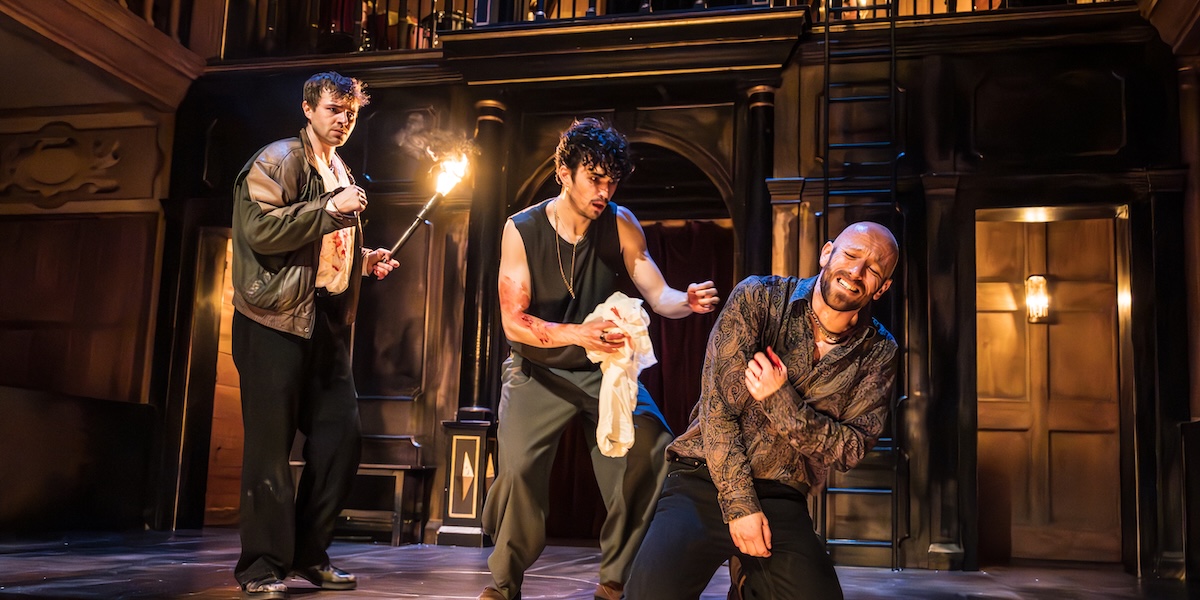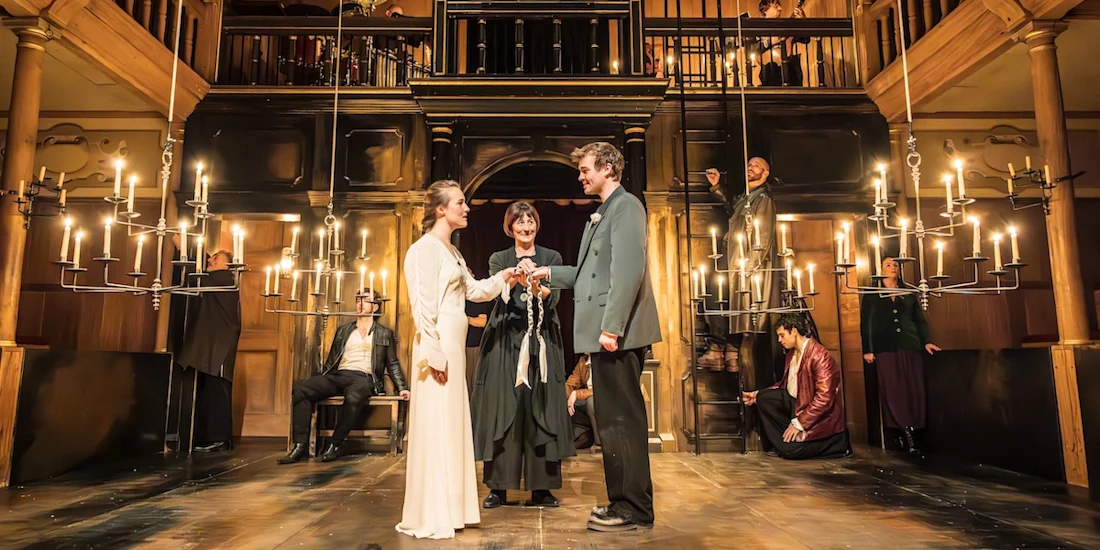'Romeo a Juliet' review — this trailblazing Welsh-language production makes Shakespeare's tragedy sing anew
Read our review of Romeo a Juliet, directed by Steffan Donnelly, now in performances at the Sam Wanamaker Playhouse to 8 November.
Summary
- Shakespeare's Globe stages a play featuring the Welsh language for the first time
- The Theatr Cymru production of Romeo and Juliet is directed by artistic director Steffan Donnelly
- Steffan Cynnydd and Isabella Colby Browne play the star-crossed lovers in this great tragedy
Two languages as well as households are both alike in dignity in this trailblazing take on Shakespeare's great tragedy from Theatr Cymru, which marks the first time Welsh has been heard on stage at the Globe.
It proves a perfect fit for the Sam Wanamaker, where every word reverberates clearly in the intimate, candlelit space. Romeo's Montagues speak mostly in Welsh, Juliet's Capulets mostly in English, though the characters flit between both (most touchingly when the lovers swap languages during their wedding). Audience members can follow the translation using the app Sibrwd on their phones, or just sit back and enjoy the musicality of it all.
The modern-dress production, which is deftly directed by Cymru artistic director Steffan Donnelly, uses a 1983 translation by J.T. Jones. It's fun to follow the transpositions – a Welsh word sounding like "mask" is used for "visage", while some words are amusingly unchanged ("saucy" being one example). The bilingual aspect breathes new life into famous passages; the balcony scene, which works well on the Wanamaker's raised platform (it also houses three musicians), seems fresh and somehow impromptu, the added element of language making this oft-seen moment sing anew.

The production is lyrical, balletic and at times surprisingly savage. When Steffan Cynnydd's Romeo kills Tybalt (Scott Gutteridge) it's with cold-blooded ferocity, not the near-accident we're often given (credit to fight director Ruth Cooper-Brown), while Paris (Imad Eldeen) is brutally drowned. It works brilliantly by candlelight, getting murkier as the action approaches its deadly conclusion; the candles are symbolically snuffed out as Isabella Colby Browne's Juliet lies drugged. If there's a tendency to melodrama, it only adds to the charm.
Browne and Cynnydd make an excellent central pair and have convincing chemistry, especially in their sensitively choreographed consummation scene (the movement director is Catherine Alexander). Having a female, Welsh-speaking friar (Eiry Thomas) is also effective, giving her relationship to Romeo a maternal edge. And there's plenty of strong support elsewhere including Owain Gwynn's leather-jacketed Mercutio, Llinor ap Gwynedd's goodly nurse, and Michelle McTernan's politicking Lady Capulet.
The final discovery of the bodies, sprawled across Elin Steele's spare wooden design, seems to happen in slow motion, as strings play from above. It's genuinely affecting, and the palpable tension in the room seemed proof enough that, if the overriding mission here is to convince us of the merits of Welsh-language productions, then consider it accomplished.
Romeo a Juliet is at the Sam Wanamaker Playhouse to 8 November.
Photo credit: Romeo a Juliet (Photos by Marc Brenner)
Originally published on
